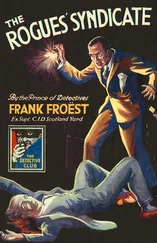Little by little the light was fading. The sky turned a deeper shade of grey as the drizzle set in. What a foul day, thought Jörensen.
For some time now the sea had smelt as though it was full of chemicals and, to make matters worse, the weather was even gloomier than his mood. We're working on a wreck, he thought, a ghost town in the water, filled with zombies. When the oil ran out, a skeleton without purpose would remain. The oil-workers were being laid off, the platforms discarded, and the future of the industry was a picture on a screen – video footage from a world they couldn't reach, no matter what went wrong.
Jörensen sighed.
In the old days, he thought, there had been the magical moment when men flung their arms round each other, dripping with shiny black oil, a fountain cascading from the sandy ground beside them, promising riches beyond their wildest dreams. Like with James Dean in Giant . Jörensen loved that film. To him, the scene where Dean struck oil was far better than the one in Armageddon , even though Bruce Willis was on a real oil-rig and Dean in the Texan desert. Watching the oil-spattered Dean laugh and jump around reminded him of sitting on his grandfather's knee, listening to stories of when he was young and everything was better.
Now he was a grandfather too.
Just a few more months, Jörensen told himself, and he'd be gone. Finished. Past it. He was luckier than the youngsters, though. No one was going to streamline him out of existence: he'd leave of his own accord, and get a pension with it. He felt almost guilty about clearing off before the oil platforms' final hour. But it wouldn't be his problem. He'd have other things to think about.
He heard a noise approaching from the distant coast. The rhythmic throbbing grew louder, becoming the roar of a helicopter. Jörensen craned his neck. He knew all the helicopters that flew around here. Despite the distance and the poor visibility he spotted a Bell 430 pass over Gullfaks and disappear into the mist. The beat of the rotors quietened to a hum and eventually fell silent.
Fine drops of rain covered the platform, like a sparkling layer of dust. Maybe he should go inside. He had an hour to kill. He didn't often have free time and he could watch TV, read or play chess. But he didn't feel like entering the module.
On the other side of the platform, the flame was burning gently from the tip of the steel boom. The beacon of the lost. Hey, that sounded almost like a film. Not bad for a decrepit old man who'd spent his whole life on a platform, watching helicopters and ships.
Maybe he should write a book in his retirement. About an era that would be forgotten in a few decades' time. The era of the oil-rigs.
He'd call it The Beacon of the Lost .
Granddad, tell us a story.
Maybe it wasn't such a bad day after all.
KIEL, Germany
Gerhard Bohrmann felt as though he was sinking in quicksand. He kept dashing between Mirbach and Suess, who were busy running new scenarios through their computers, coming up with ever more disastrous results. Every few minutes he tried to call Johanson, who wasn't answering his phone. He even called Johanson's secretary at the NTNU, who told him that Dr Johanson was away and wouldn't be back for some time. He'd apparently been released from his position to attend to other business – on behalf of the government, Bohrmann assumed. He tried Johanson's home number, then his mobile again. No joy.
In the end he consulted Suess.
'There has to be someone in Johanson's circle who could take a decision, Suess said.
'Only the Statoil lot – in which case we may as well keep it to ourselves. And, anyway, about this confidentiality business, what if there is a Storegga Slide? It'll look pretty bad if we've kept it quiet.'
'What do you suggest?'
'I wouldn't take it up with Statoil.'
'OK.' Suess rubbed his eyes. 'You're right. We'll contact the Ministry for Science and Technology and the environmental authorities.'
'In Oslo?'
'And in Berlin, Copenhagen, Amsterdam – London, too. Have I forgotten anyone?'
'Iceland.' Bohrmann sighed. 'Let's do it.'
Suess stared out of his office window across the Kiel Firth to the warehouses, silos and giant cranes that loaded the ships. The contours of a naval destroyer merged with the grey of the clouds and water.
'What do the simulations have to say about Kiel?' asked Bohrmann. It was odd that he hadn't thought of it before.
'It could be OK.'
'I guess that's some comfort.'
'Call Johanson anyway. Just keep trying.'
Bohrmann nodded and left the room.
DEEP ROVER, Norwegian Continental Slope
There was no sign of the vastness of the ocean when Eddie switched on the six external floodlights. The four 150-watt quartz halogen bulbs and the two 400-watt HMI lights combined to bathe an area twenty-five metres in radius in a pool of glistening light. They couldn't make out any solid structures. Stone blinked after the long journey through the darkness. The Deep Rover was falling through a veil of shimmering pearls.
He leaned forward. 'What's that? Where's the seabed?'
Then he saw what was spiralling round them. Bubbles were rising towards the surface, some nestling together like heads on a string, others plump and egg-shaped.
The sonar continued to make its usual whistling, clicking noises. Eddie was frowning at the console's LED display, which provided information on the batteries, the inside and outside temperature, the oxygen reserves, cabin pressure and so on. He called up the data from the external sensors.
'Congratulations,' he growled. 'It's methane.'
The veil of pearls thickened. Eddie released two steel weights attached to the side of the pods, and pumped air into the tanks to stabilise the submersible. But instead of hovering in the water, they carried on sinking.
'Bloody marvellous. It won't let us up.'
The seabed appeared beneath them, visible in the floodlights. It was approaching too fast. Stone caught a glimpse of the crevices and craters, then his view was filled with bubbles. Eddie swore and continued to expel water from the tanks.
'What's going on?' Stone asked. 'Buoyancy problems?'
'More likely to be the gas. We're in the middle of a blow-out.'
'Shit.'
'Just keep calm.'
The pilot fired up the thrusters. The submersible pushed forward through the strings of bubbles. For a second Stone felt as if he was in an elevator that was slowing as it reached the floor below. He looked at the bathometer. The Deep Rover was sinking, although the speed of its descent had slackened. But they were still hurtling towards the seabed. Time was running out.
Stone bit his lip and let Eddie get on with his job. In such a situation it wasn't advisable to distract the pilot. He watched as the bubbles became rounder and the veil closed in. Through the whirling water he saw the faint outline of the seabed tilt away from them, and their right pod vanished in a fierce cascade of bubbles. The submersible heeled.
Stone held his breath.
They'd made it.
The commotion of bubbles gave way to a quiet expanse of seabed. Briefly the submersible rose. Unhurriedly Eddie valved water into the ballast tanks until the Deep Rover reached a stable depth, just above the slope. 'Panic over,' he said.
They were travelling at maximum speed, two knots or 3.7 kilometres per hour – slower than any jogger. But they weren't trying to cover a great distance – in fact, they were at almost exactly the spot where Stone had built the unit. It couldn't be much further.
The pilot grinned. 'I suppose we should have known this would happen, huh?'
'Not to that extent.'
'Who are you kidding? The sea stank like a cesspit. That gas had to be coming from somewhere. But you wanted it your way – well, now you've seen it.
Читать дальше












